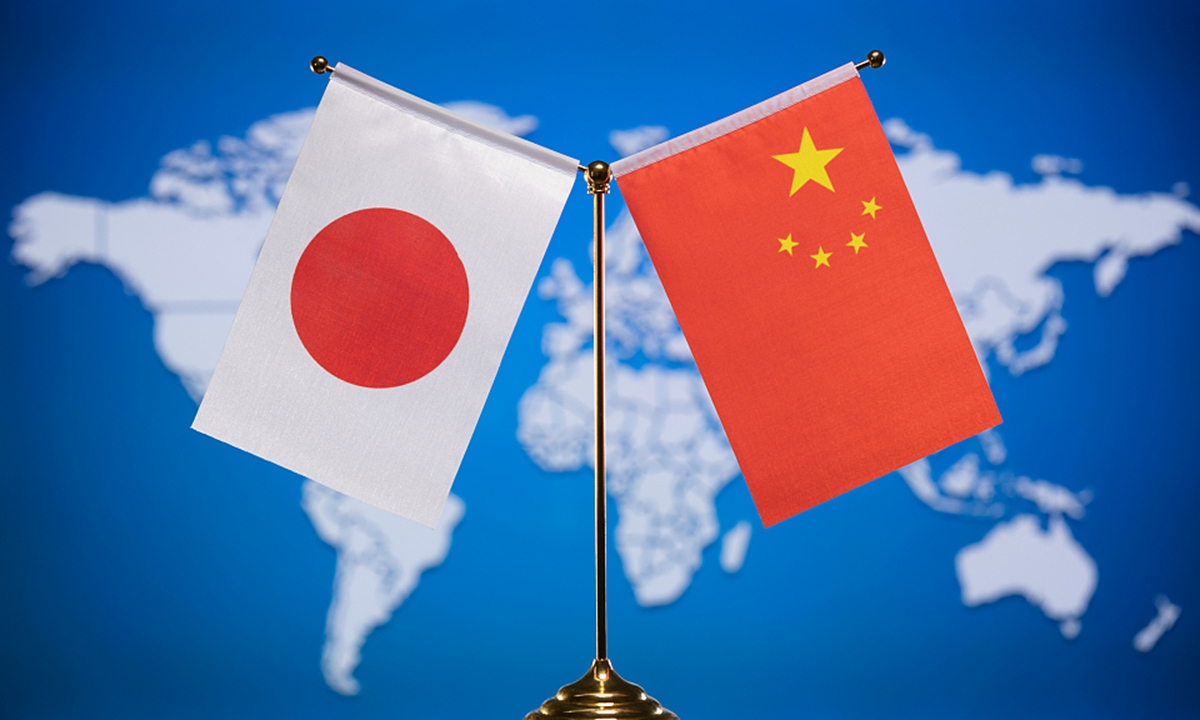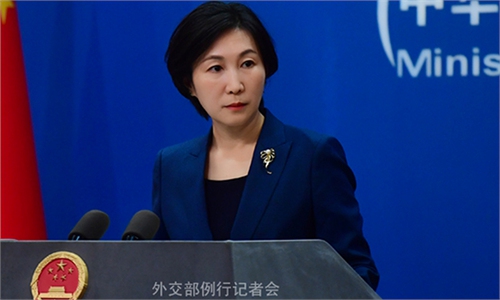
China-Japan Photo: VCG
While expressing their welcome to the possible China trip of Japanese Foreign Minister Yoshimasa Hayashi, Chinese observers hold a "cautious and reserved" attitude toward bilateral ties, as they believe that Japan has taken China more as a rival or threat than a friend or partner, considering the Tokyo's recent series of provocations against Beijing.
According to the Japan Times on Wednesday, Hayashi has set his sights on visiting China this weekend, in an effort to right foundering ties. If the plan comes to fruition, this would be the first visit to China by a top Japanese diplomat in more than three years since the outbreak of the COVID-19 pandemic.
In response, Mao Ning, spokesperson for the Chinese Foreign Ministry, said Wednesday that the two sides are in communication over the potential visit. "We will keep you updated if there is more to share," Mao noted.
Japanese media revealed that during the possible visit, Hayashi would urge China to release a Japanese national China had detained on suspicion of spying.
Also, aiming at building a constructive and stable relationship as confirmed at the bilateral summit last November, the two sides are expected to further implement the consensus and talk about a policy to continue such dialogue.
Kyodo News reported that Tokyo intends, through Hayashi's visit, to promote a more active framework for consultation, such as the China-Japan high-level economic dialogue held at the ministerial level. Separately, to avoid accidental clashes in places such as the East China Sea, talks are expected on the launching of a defense hotline.
The Diaoyu Islands issue, the Taiwan question and the Russia-Ukraine conflict are also likely to be covered during Hayashi's visit.
Experts saw Hayashi's trip to China as a positive move to restore high-level exchanges amid strained relations. But they also pointed out the key to improving China-Japan relations lies in Japan and the Japanese government should stop provocations against China.
Da Zhigang, director of the Institute of Northeast Asian Studies at the Heilongjiang Provincial Academy of Social Sciences, told the Global Times on Wednesday that Hayshi's visit would still be worth looking forward to, because after all, China and Japan are inseparable neighbors. If the tensions between the two sides accumulate further, it may cause a lot of damage to economic cooperation and multilateral exchanges in the Asia-Pacific region, Da explained.
It is hoped that the Japanese official could talk more about pragmatic things that are related to cooperation and exchanges and conducive to deepening China-Japan mutual trust, and that could implement the consensus reached by the heads of the two countries last year, Da said.
News of Hayashi's visit to China has caught attention in China and Japan. Many people in Japan have called for the Japanese government to alleviate the tense relations with China.
As a major step to implement the consensus reached by the top leaders, the Japanese foreign minister planned to visit China last year but the trip was postponed due to the pandemic. While the bilateral relations are currently at a low ebb, Hayashi's visit is an opportunity for the two sides to exchange views on major issues that have strained relations, said experts.
However, although the two countries are expected to take a moderate stance or flexible posture during the visit, it is impossible to reverse some of Japan's strategies, such as the US-led comprehensive strategy of containment of China including in security, the economy, trade and supply chains.
Da also warned of the speculative and double-dealing nature of Tokyo.
Japan, on the one hand, is trying to ease tensions with China through its foreign minister's visit. On the other hand, it, along with the US and the Philippines, plans to set up a three-way security framework in an attempt to strengthen deterrence against China in the East China Sea and South China Sea, and prepare for potential emergencies over the Taiwan question, according to the Japan Times on Tuesday.
Against the backdrop of the negative domestic atmosphere toward China, Hayashi has been urged by some politicians in Japan to be tough on certain issues when coming to China, such as issues related to the South and East China Sea, said experts.

